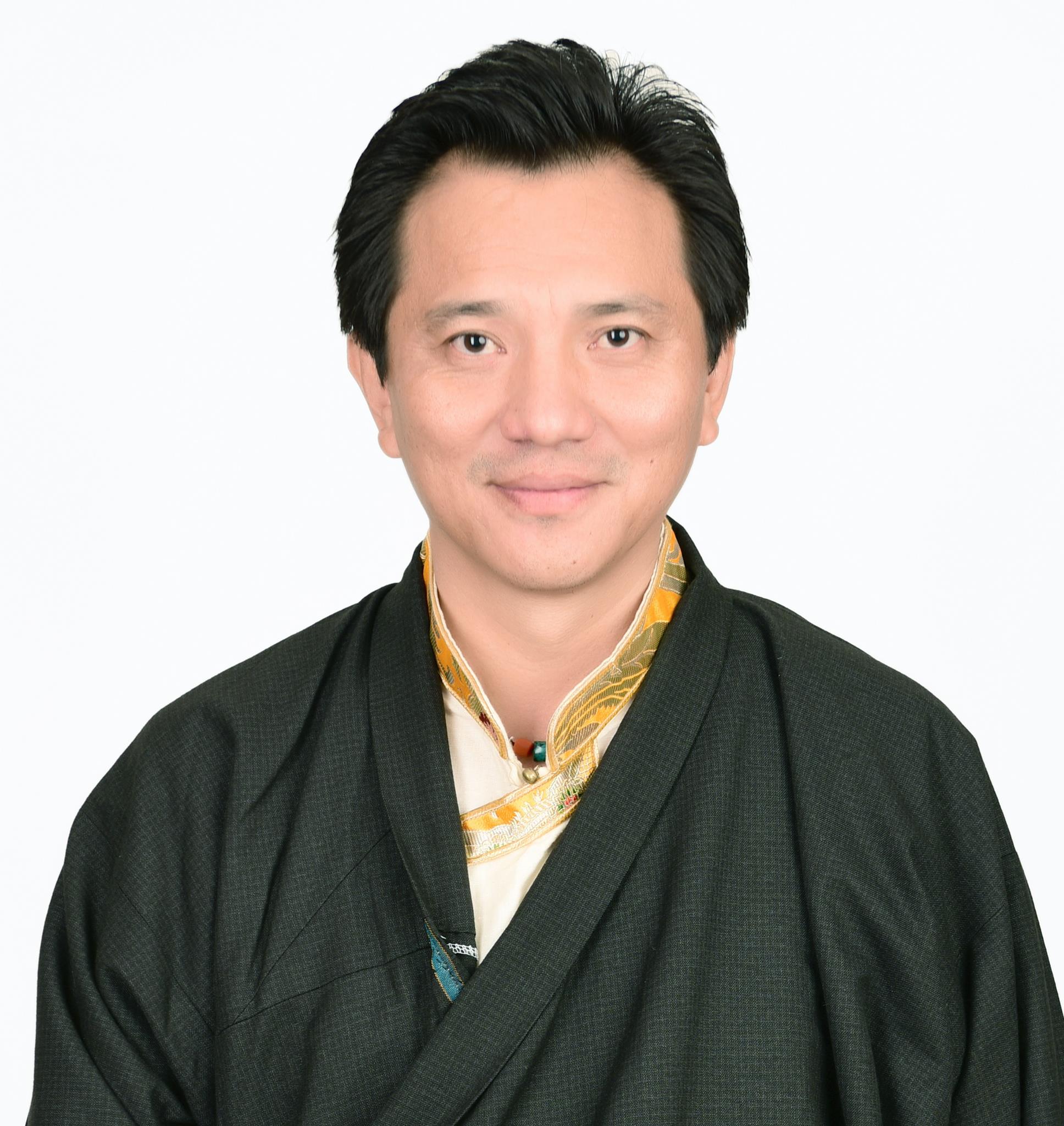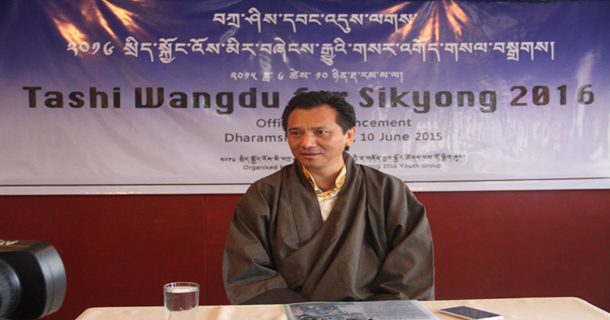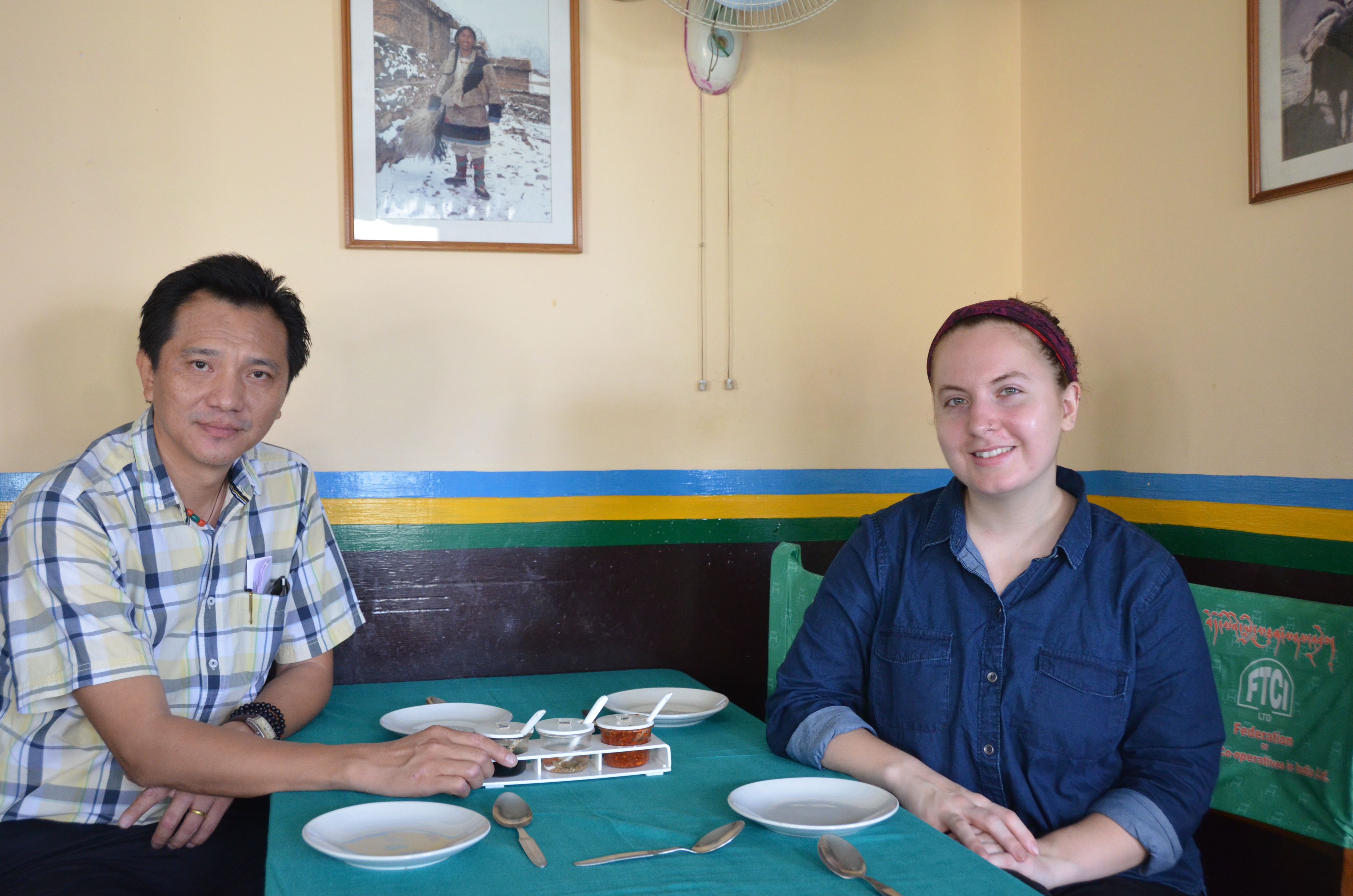PROFILE:
- Born in the Bylakuppe Refugee Camp in 1972
Education:
- Attended the Central School for Tibetans (Mussoorie)
- Earned his BCom at Mysore University
- Post-Grad Diploma in Business Administration at St. Joseph’s College (Bangalore)
- Attended New York University on a Fulbright Scholarship to earn his MA in International Relations
- Has been to many conferences on Cooperatives, Conflict Resolution, Engaging the Other, Racism, and Sustainable Development in Thailand, South Africa, Russia, and the USA
Work History:
- CEO of the Federation of Tibetan Cooperatives in India (current position)
- Secretary of the Bureau of His Holiness the Dalai Lama (New Delhi)
- Representative of Tibetan Settlements for the CTA (Bylakuppe)
- Chief Representative of South Zone of Tibetan Settlements (Bangalore)
- General Secretary of the Office of Tibet (Pretoria, South Africa)
- Accountant of the Tibetan Parliament Secretariat (Dharamshala)
Key Points:
- Experienced in both international relations and commerce: has served Tibetan settlements in India and helped Tibetan Cooperatives become profitable as CEO of FTCI.
- Campaign platform – SEEN: Sustainability, Education, Economy, Negotiation
- Hoping to work for the Tibetan cause by following the Middle-Way approach. Supports the Dalai Lama’s perspective that dialogue will accomplish effective change.
- Aims to revive the dialogue between China and Tibet as soon as possible.
- Emphasises providing education for youth and improving the economy
Just two months ago, Tashi Wangdu, Chief Executive Officer of the Federation of Tibetan Cooperatives in India and experienced diplomat within the Tibetan community, announced his intention to run for the position of Sikyong in the parliamentary elections this October. However, according to Mr. Wangdu, this opportunity has been on his mind for a while now: “I registered at Sikyong.com in 2013, before all of this came up, [which] clearly shows what I’ve been thinking for a long time.” In a recent conversation with the Sikyong candidate, he explained that he is ready to take on the maximum amount of responsibility as a means of serving the Dalai Lama and the Tibetan people. “His Holiness the Dalai Lama has given us a very precious democratic system,” Mr. Wangdu said proudly, and he considers it his duty to serve at the highest level possible.
According to Mr. Wangdu, his educational background and work experience combine to prepare him for the position of Sikyong. He has studied business management and international relations, and has worked both as a diplomat and as CEO of the Federation of Tibetan Cooperatives. Wangdu is eager to continue his education in new fields, and regularly attends international conferences on conflict resolution, racism, and sustainability. When thinking about the criteria for a qualified Sikyong, he explained that it is not enough to simply be familiar with key topics. “When I say [that] economics is important, you are saying yes – you feel it is important. But if one doesn’t have knowledge or experience [in this area], then there’s a problem.” Mr. Wangdu believes that a true scholar has knowledge and experience in a variety of fields, and explains that he can bring this range of expertise to the Sikyong position.
When asked how his agenda differs from that of the current Sikyong, Mr. Wangdu emphasised the importance of “resolving the issue of Tibet…through dialogue or negotiation.” He expressed a frustration with the current administration’s lack of progress with China, and stressed the value of reviving this conversation. He also hopes to invest more energy in sustaining the Tibetan settlements, and referenced former Kalon Tripa Samdhong Rinpoche’s organic farming initiative as a positive example of future programming. Finally, Mr. Wangdu believes that more work can be done to bolster the quality of education for Tibetan students. He mentioned the importance of ensuring that teacher salaries increase so as to attract better instructors, and involving Tibetan students in more professional courses and job training. In these areas, the candidate asserted that he can “work more, work better, [and] work faster, compared to the present Sikyong.”
Thinking further about resolving the Tibetan issue, Mr. Wangdu said that it is crucial to take action quickly. He wishes to communicate to the Chinese leaders that “His Holiness the Dalai Lama is the key to the Tibetan issue,” and believes that it will be better for both sides if the conflict can be dealt with in his lifetime. Wangdu spoke reverently of the Dalai Lama, stating clearly that he has full faith in him and believes in everything that His Holiness says. “I’m ready to jump from the building if he says it’s the right thing to do,” he noted, smiling.
Mr. Wangdu’s current role as the CEO of the Federation of Tibetan Cooperatives has given him a unique perspective on the importance of preserving and promoting traditional Tibetan culture. Having seen firsthand the impact of strong, self-sustaining settlements, he believes that the best way to uphold the Tibetan identity is by living in Tibetan communities. “Because we live in settlements, we preserve our customs. [And] not just these things, but our struggle, our politics, culture, religion, everything.” Part of Mr. Wangdu’s political platform is to provide a “home for all,” as he believes it is the government’s responsibility to supply shelter for every Tibetan. The candidate revealed that his vision would ultimately be to create Tibetan towns or villages all over the world.
Although the current Sikyong, Dr Lobsang Sangay, has announced his intention to run for re-election, Mr. Wangdu hopes to provide him with some strong competition. His range of education and work experience combined with a dedication to the preservation of Tibetan culture and a commitment to resolving the Tibetan issue make his political perspective one that many voters may appreciate. And, according to Mr. Wangdu, it is his time to step up. “People are asking me ‘What about you? Are you ready?’ Yes, I’m ready. I’m ready anytime.”
Keep up to date on election issues by following this link to our election news page: Election 2016







 Print
Print Email
Email